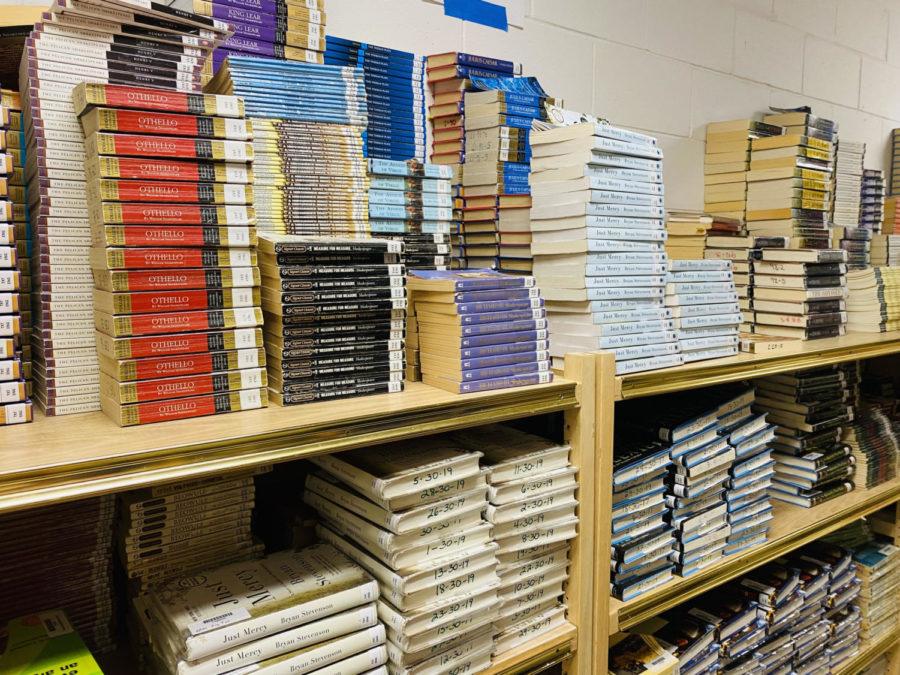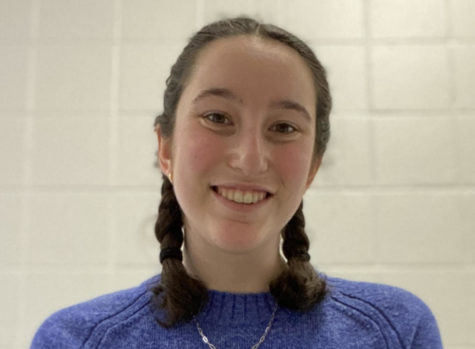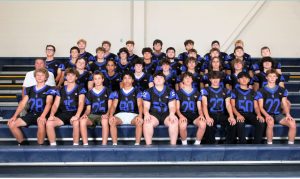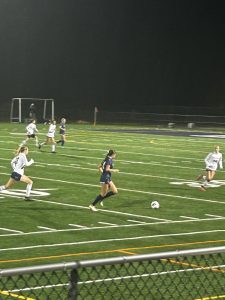Living Between the Pages
HBHS’s book closet nicknamed “The Room of Requirement ” for the rooms’ inconspicuous placement on the second floor and the copious amount of titles inside.
November 18, 2021
I can still recall the feeling I went through when I first read The Outsiders by S.E Hinton in seventh grade. It was the middle of May when my teachers passed the novel out to my class and started going over the general synopsis of the story. By the second chapter I became completely engrossed in the story, the characters, and especially the problem: gang violence. Living in a quiet, mostly harmless town, I had never read about the dangers around inner-city violence. As a 12 year old middle school student, I only knew what I had personally experienced and everything around me. Reading about something much more serious and violent broadened my view of what other people were going through. It gave me a perspective of lives that are so different from my own.
Isabelle Colantuonio ‘22, recalls a similar experience with her favorite required reading in high school. “This book allowed me to see the perspective of someone going through an experience that impacted millions of lives, and is not discussed enough,”said Colantuonio when explaining the importance of her favorite school reading, Farewell to Manzanar by Jeanne Wakatsuki Houston and James D. Houston. The memoir tells the true story of a young girl facing racism and discrimination after the disaster of Pearl Harbor. The main perspective is of a young girl, which helps to show how young children perceived what was happening during that time. Colantunio found that the way the book discussed difficult topics helped make her more aware of the issues going on in this time period. The novel discussed issues and historical information she did not know about. “It created necessary and thoughtful discussions on the impact of the book on both the author, and others who experienced the internment camps,” said Colantunio in response to why this book is important in the schools curriculum.
Christine Heaton, HBHS’s head librarian, completely agrees with reading about different and diverse perspectives. “Your school experience is supposed to introduce you to all walks of life, all over the world, and it’s up to you in school to make of that what you will.” Heaton is also a firm supporter of class discussions and Harkness discussions. “I think the English department does a really good job here of just letting kids talk,” said Heaton. The best way to learn about new ideas and opinions is to hear about them from peers. It gives students a chance to learn something from each other, while at the same time picking up healthy arguing skills. Heaton describes this best saying “as you know, kids sit in classrooms and disagree all the time, but when the bell rings we all walk out as friends. That is what we’re trying to teach.” Heaton wants kids to be aware of other experiences, and to come up with an opinion on them, but at the same time learn that everyone is entitled to their own viewpoint.
Lauren Grosse, HB’s Head of the English Department, finds that novels which provide “life lessons that they [students] can connect to their lives and human nature” such as Flowers For Algernon and Lord of the Flies, are the most important to teach. Grosse finds that having an understanding of humanity helps students understand the diversity of different cultures and ways of life. The Hollis-Brookline English Department puts a great amount of effort into finding novels that are inclusive and diverse. “Kids do prefer to read books more or less about things they can relate to,” Grosse said, which is why it is sometimes difficult to introduce novels that students have a lack of background knowledge on. Grosse also finds it hard to bring in newer novels to the curriculum, due to newer books not having enough teaching material. Newer books are “engaging, kids would like them, but it falls to, ‘what would we do with them in class?’ Where’s the symbolism? What’s the theme? A lot of newer literature is well written and it’s an engaging story but in terms of value and merit for literary analysis, we’re just not seeing that as much.” This can sometimes result in a lack of new material being able to be brought into the classroom. At the current moment, the English Department finds that older, more classic books provide the material they need to teach students.
On the subject of finding modern titles that High Schools should put more focus on, Grosse said, “I do think we need some more modern titles. The biggest thing is finding books that are representative of female protagonists. We have a major lack of that.” The challenge now is finding books that provide the relevant topics, as well as literary skills that students need to learn. Grosse hopes to have the novel Purple Hibiscus by Chimamnda Ngozi Adichie added to the schools reading list next year. The book follows the life of a young woman and her brother living in Nigeria, who have struggles with their home life. The book includes elements of having a tough home life, parental pressures, the expectations society has of young adults, that may be relatable to HB students. The English Department is constantly looking for new material and new lessons to teach to their students, to ensure that each grade leaves this school with a healthy understanding of how different and unique each person is, as well as finding respect for each other, no matter what we believe.













![Students in Archaeology use tools in a mock excavation. As a class that focuses on hands-on learning, students are able to gain crucial life skills. “[The class] is more hands-on than I thought, and I'm learning way more with physical activities than I do in the classroom,” said student Tess Brown ‘25.](https://cavchronline.com/wp-content/uploads/2024/11/IMG_8390-e1733078359165-278x300.jpg)
